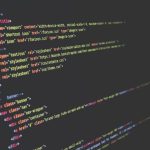While no couple enters into a marriage thinking it's going to end in divorce, the statistics show that nearly half of all marriages don't last until death do us part. And as clinical as it may sound, big data could prove to be a much-needed solution. The Analytical Side of Marriage Research shows that the three most common causes of divorce are basic incompatibility (43 … [Read more...] about Can Big Data Predict Marriage Success Rates?
Big Data
Learn everything you need to know about big data. Find out how companies are using this revolutionary technology and what it means for your business strategy.
Machine Learning Project Structure: Stages, Roles, and Tools
Various businesses use machine learning to manage and improve operations. While ML projects vary in scale and complexity requiring different data science teams, their general structure is the same. For example, a small data science team would have to collect, preprocess, and transform data, as well as train, validate, and (possibly) deploy a model to do a single … [Read more...] about Machine Learning Project Structure: Stages, Roles, and Tools
How Your Smart Device Could Testify Against You
Alexa, do you swear to give the truth, the whole truth and nothing but the truth? Data from smart devices is increasingly helping law enforcement build criminal cases. With the growth of the internet of things market, smart connected devices play a vital role in our day to day lives now. From fitness trackers, voice assistants and smartwatches to cameras in our fridges, … [Read more...] about How Your Smart Device Could Testify Against You
What Does GDPR Mean For Your Business?
The European General Data Protection Regulations (GDPR) will come into force on May 25, 2018. These regulations will have a significant impact on existing data collection and analysis methods. Many businesses have become reliant on customer data collection for marketing and product designing. These businesses would need to formulate a new strategy on how to keep their business … [Read more...] about What Does GDPR Mean For Your Business?
Should You Go Back to School for Data Science?
A 2017 LinkedIn report lists statistical analysis, data mining and data presentation among the top ten in-demand skills in the United States. The skills, which are a part of the data science field, emerged from an amalgamation of the computer science and statistics disciplines. Data scientists combine computer modelling and statistics to transform information into actionable … [Read more...] about Should You Go Back to School for Data Science?
What is big data?
Big data is a term that refers to the massive amount of digital data created and shared every day. Big data can transform how we live, work, and communicate. It can be used to improve everything from public health and urban planning to business and marketing.
Big data is also changing the way we think about privacy and security. The volume, velocity, and variety of big data present challenges and opportunities for organizations and individuals. Regardless, big data is here to stay, and its impact will only continue to grow in the years to come.
What is big data analytics?
Big data analytics is the process of turning large, complex data sets into actionable insights. Businesses use various analytical tools and techniques, including machine learning and statistical analysis, to do this.
Big data analytics can be used to improve decision-making in areas like marketing, operations, and customer service. It can also be used to identify new business opportunities and optimize existing processes. With the help of big data analysis, businesses can gain a competitive edge by using their data better.
Want to learn more about big data? Datafloq has courses available. Contact us to get started.
When was big data introduced?
The term big data was coined in the 1990s, with some giving credit to John Mashey for popularizing the term. However, the concept of big data has been around for much longer.
Where does big data come from?
In the early days of computing, scientists and businesses began to realize that the amount of data being generated was increasing exponentially. As a result, they began to develop new methods for storing and processing data.
Over time, these methods have become increasingly sophisticated and have played a key role in enabling businesses to make sense of vast amounts of information. Today, big data is used in various industries, from retail to healthcare, and its importance is only likely to grow in the years to come.
What are examples of big data?
One of the most common examples of big data is social media data. With over 2 billion active users, Facebook generates a huge amount of data every day. This includes information on user interactions, posts, and even location data. Analyzing this data can help companies better understand their customers and target their marketing efforts.
Another example of big data is GPS signals. These signals are constantly being generated by devices like cell phones and fitness trackers. When combined with other data sets, GPS signals can be used to provide insights into everything from traffic patterns to human behavior. Finally, weather patterns are another type of big data set. By tracking these patterns over time, scientists can better understand the impact of climate change and develop strategies for mitigating its effects.
How do companies use big data?
Companies use big data in marketing, product development, and customer service. By analyzing large data sets, businesses can identify patterns and trends that would be otherwise difficult to spot. For example, a company might use big data to track customer behavior patterns to improve its marketing efforts.
Alternatively, a company might use big data to improve its products by identifying areas where customers are most likely to experience problems. For instance, big data can be used to improve customer service by finding pain points in the customer journey. Ultimately, big data provides companies with a valuable tool for gaining insights into their business operations.






